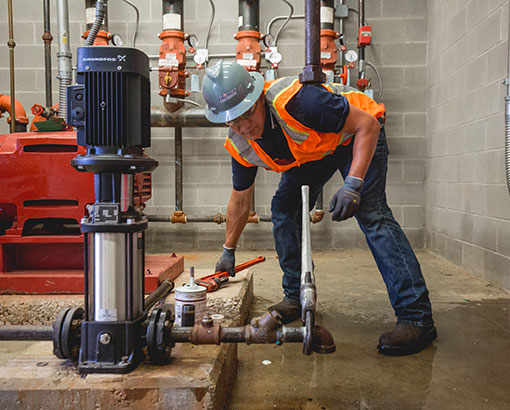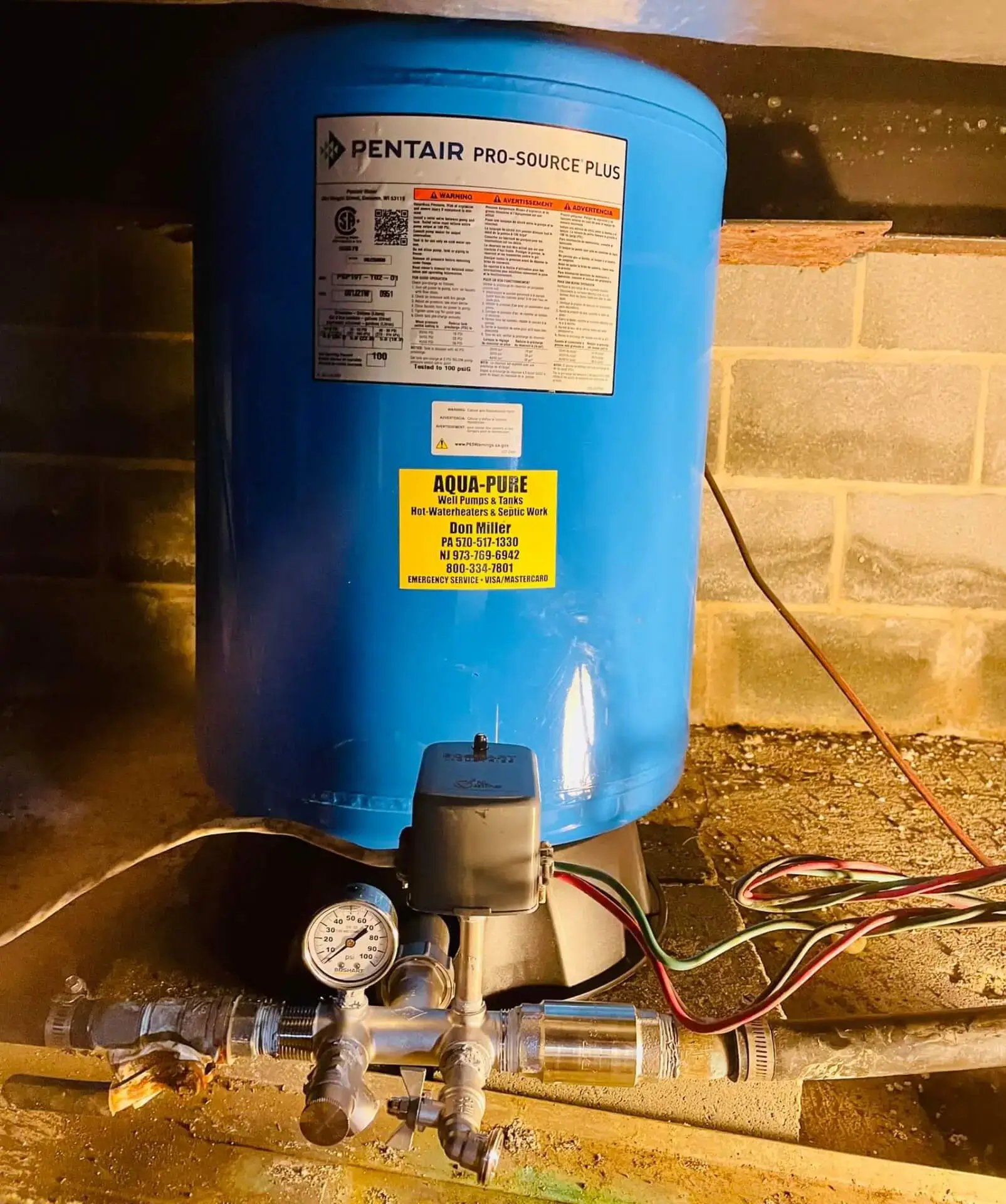Seamless Well Pump Replacement: Recovering Your Water Supply with Precision
Seamless Well Pump Replacement: Recovering Your Water Supply with Precision
Blog Article
Comprehending the Secret Elements of Effective Water Purification Equipments

Importance of Water Filtration Equipment
Water filtering systems play an important role in ensuring accessibility to tidy and safe drinking water by effectively eliminating contaminants and impurities. These systems are essential in resolving the expanding concerns over water top quality and the prospective health threats associated with eating contaminated water. By making use of different purification systems such as reverse osmosis, activated carbon, and UV sterilization, water filtering systems can successfully get rid of hazardous substances like bacteria, viruses, heavy steels, and chemicals from the water.
Additionally, water filtration systems assist to improve the preference and odor of water by getting rid of chlorine, sediments, and other toxins that can affect its high quality. Water Treatment. This enhancement in water high quality not just makes it more palatable yet also motivates people to drink an appropriate quantity of water daily, advertising better hydration and general wellness
Types of Filtering Parts

Physical filters are made to literally stress out impurities from the water. These filters can be made from products like ceramic, carbon, or perhaps sand, and they work by trapping particles larger than the filter's pores as water goes through.
Chemical filters make use of various chemical processes to eliminate pollutants from the water. Examples consist of triggered carbon filters, which adsorb impurities, and turn around osmosis membrane layers, which use pressure to separate contaminants from the water.
Biological filters use living organisms like algae or germs to damage down raw material and toxins in the water. These filters are frequently used in wastewater treatment plants or natural water purification systems.
Comprehending the different sorts of filtration components is essential for choosing the most suitable water filtration system for particular purification needs.
Function of Debris Filters
Debris filters play a crucial duty in water purification systems by properly recording solid bits suspended in the water. These filters are commonly the very first line of defense in a filtration system, removing bigger bits such as sand, silt, dirt, and rust prior to the water relocates with finer filtration phases. By capturing these sediments, the filters prevent them from getting to downstream components, hence expanding the life expectancy and effectiveness of the entire system.
The feature of debris filters is important in maintaining water top quality and securing sensitive tools from damages created by particles. Furthermore, by removing noticeable particles, debris filters improve the clarity and preference of the water. Consistently replacing or cleaning debris filters is vital to make certain ideal performance. Disregarding this maintenance can bring about blocking, reduced water flow, and compromised filtering efficiency. Generally, sediment filters are vital components that add substantially to the performance of water filtering systems.
Function of Turned On Carbon Filters
Playing an essential function in water purification systems, activated carbon filters contribute in getting rid of impurities and contaminants from the water system. These filters are made to adsorb and trap a variety of pollutants, including chlorine, unstable natural substances (VOCs), chemicals, and herbicides. The activated carbon material has a large surface area, enabling for the reliable capturing of impurities see this page through a procedure called adsorption. As water passes through the filter, the activated carbon draws in and holds onto the pollutants, making certain that the water that appears on the various other side is cleaner and safer for consumption.
Triggered carbon filters are extremely efficient at enhancing the preference and smell of water by decreasing chemicals that can influence its top quality. Due to their adaptability and integrity, triggered carbon filters are a key part in ensuring that water is purified to the highest possible requirements prior to reaching customers.
Recognizing Reverse Osmosis Systems
Reverse osmosis systems are innovative water filtration systems that utilize an innovative process to eliminate pollutants and pollutants from alcohol consumption water. These systems function by applying pressure to the water, compeling important link it via a semi-permeable membrane layer. This membrane works as an obstacle, allowing only pure water molecules to go through, while obstructing larger particles such as minerals, chemicals, and various other pollutants. Because of this, the water that comes out beyond is dramatically cleaner and safer for usage.
One secret advantage of reverse osmosis systems is their ability to get rid of a wide variety of contaminants, including hefty steels, dissolved viruses, solids, and bacteria. This makes them very effective in improving the overall high quality and security of drinking water. Furthermore, reverse osmosis systems are fairly low-maintenance and can be installed under the sink or in a main purification system, providing convenient access to clean water throughout the house. Generally, comprehending exactly how reverse osmosis systems function can help individuals make informed choices regarding their water filtering needs.
Conclusion
Finally, efficient water filtration systems are important for making certain risk-free and tidy drinking water. The vital parts of these systems include sediment filters, activated carbon filters, and reverse osmosis systems. By understanding the feature and role of each component, people can make informed choices when selecting a water filtration system. It is necessary to prioritize the top quality of water in order to advertise total health and wellness.
Water purification systems play an essential duty in making certain access to tidy and secure drinking water by properly getting rid of impurities and click to find out more contaminations. By making use of numerous filtration devices such as reverse osmosis, triggered carbon, and UV sterilization, water filtration systems can successfully remove harmful materials like bacteria, viruses, heavy metals, and chemicals from the water supply.
Sediment filters play a crucial role in water filtration systems by effectively catching solid fragments suspended in the water (Pump repairs & installation).Playing an essential duty in water filtration systems, triggered carbon filters are crucial in eliminating pollutants and pollutants from the water supply.Reverse osmosis systems are sophisticated water filtration systems that utilize a sophisticated process to eliminate pollutants and impurities from drinking water
Report this page